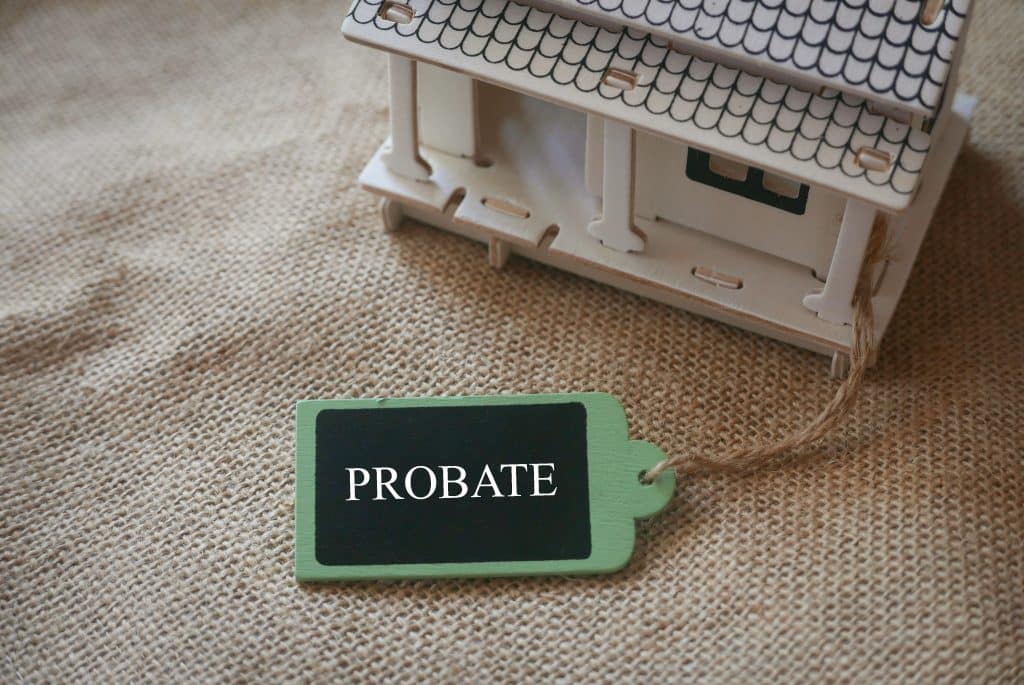
What is probate?
Probate simply refers to the process of confirming which individual can legally carry out the estate administration for a deceased person. Typically, the deceased’s will should name the executor responsible for handling their affairs and estate.
The friends and family of deceased individuals without a will, however, may need to look to the Rules of Intestacy to identify who is legally responsible for handling the deceased’s affairs and estate.
While you do not always need probate to be able to deal with an estate, the executor may be required to apply for probate. A specialist probate solicitor can guide you through the probate application process, while handling the legalities of probate and estate administration.
Our Probate Services
At Freeman Jones Solicitors, we understand just how stressful dealing with the loss of a loved one can be. Our expert probate solicitors in Chester can offer you professional support by helping you to obtain the grant of probate, monitor financial claims submitted by disappointed parties, and analyse estate paperwork.
Explained in straightforward language, our wills and probate solicitors offer support with a variety of legal services, including:
- Lasting powers of attorney
- Obtaining grant of probate
- Administration of estates
- Contested wills
- Intestacy rules
- Inheritance disputes
- Executor disputes
- Court of protection
- Probate estate
Our Estate Adminsitration Services
Our experienced Probate and Estate Administration team can help you deal with the legal and financial aspects of dealing with the estate. We can provide tailored support specific to your needs or a comprehensive Estate Administration service.
If you have been named as the Executor in a Will and would like to receive confidential support, advice and guidance from an experienced team, then we’d be happy to help.
Our Probate and Estate Administration team at Freeman Jones can advise you on your options in relation to a loved one’s Estate and accounts and can help you to clear up any queries or confusion you may have as to your role and authority. We understand that this will be a trying time for all involved and vow to make the process as straightforward as possible.
Our probate solicitors Chester team can also undertake many steps for you such as;
- Registering the death
- Notifying third parties of the death
- Identifying whether the deceased owed any debts
- Closing the deceased’s bank accounts
- Collecting in the deceased’s assets
- Identifying whether income, inheritance or capital gains tax is due
- Make payment for any tax that is due
- Paying off the deceased’s liabilities and expenses such as funeral and administrative
- Placing notices to locate any unknown creditors
- Obtaining the Grant of Representation
- Establish who is entitled to what and distribute the monies or assets in the estate
As well as helping clients deal with Estate Accounts, our solicitors also have expertise in dealing with other matters relating to wills and probate. For instance, our team can help with matters such as:
- Will Writing
- Rules of Intestacy
- Lasting Power of Attorney (LPA)
- Executor duties and disputes
- Contesting a will
Whether you would like our probate lawyers to take the responsibility for preparing Estate Accounts on your behalf should the worst happen, or if you just want some advice regarding a will, we are here to help.
Looking for Probate solicitors in Chester?
If you’ve been searching for ‘probate solicitors near me’, look no further than Freeman Jones Legal. Despite being based in Chester, we also have offices in Warrington, Liverpool, and Wrexham, allowing us to support customers in Cheshire as well as those located throughout North Wales.
Instead of aimlessly Googling for a ‘probate specialist near me’, turn probate solicitors in Cheshire you can trust. To learn more about our estate probate services, simply give the experienced team of wills and probate solicitors at Freeman Jones Legal a call today on 01244 506 444 to book your free consultation.
FAQs for Probate
-
Most estates will need to go through probate as the probate threshold in the UK is applicable for estates worth more than £5,000. However, this rule of thumb can vary depending on the individual rules of each bank and financial organisation.
-
While you can apply for probate without a solicitor, it’s often best to seek expert legal advice. Not only can applying for probate be both time-consuming and laborious, but it can be particularly difficult following the loss of a loved one.
-
Many solicitors for wills and probate will ask for support from an accountant when it comes to the more complex financial elements of probate. However, seeking support from an experienced or specialist probate solicitor can make the process of applying for probate much easier and ensure you’re not penalised in the event that you submit inaccurate information.
-
Often, families choose the same probate solicitor that helped draft the will as they have built some kind of rapport and trust either the individual solicitor or the business. However, you should also ask whether they have any specialist professional qualifications, what’s included in their probate services, and find out more about their fees, for example, whether there any hidden costs, to help you choose a transparent and experienced wills and probate solicitor.
-
The hourly rate for a probate solicitor will naturally vary depending on their experience, but £250-£280 tends to be the average cost. However, prices can start at just £160, with more experienced wills and probate lawyers earning up to £400 per hour. A wills and probate solicitor will typically take their fee from the estate funds, rather than from the executor of the will.
-
In the UK, the average cost of a probate solicitor will vary between 1%-5% of the estate value with VAT on top. If your estate is valued at £250,000, you can expect the solicitor to receive somewhere between £2,500-£12,500 (plus VAT). However, the exact cost will vary according to the individual circumstances.
-
Estate Administration records the assets, as well as debts, of an Estate. It will set out any fees and administration expenses (such as utility bills and property taxes), and the amount of income that has been received during the administration of the Estate.
As well as obtaining the Grant of Probate or Letters of Administration, Estate Administration could involve:
- Income tax work
- Postal redirection
- Completing Inheritance Tax forms
- Valuing assets
- Cancelling or transferring utilities
- Dealing with shares and investments
- Selling property
- Distributing funds to beneficiaries
Estate administration can often be extremely complex and time-consuming, adding extra stress to an already difficult time for the Executor or Administrator. However, they do not have to take full responsibility for all tasks. They can choose to appoint a professional to handle the estate on their behalf.
-
Probate is just one part of the wider estate administration process. It’s Probate that gives you the legal right to move forward with the wider Estate Administration. Probate isn’t always required, but Estate Administration must always be carried out whatever the complexity or value of the estate.
Depending on the size, nature and complexity of the Estate, the administration process can be complex and convoluted. Professional Estate Administration ensures that all the legal duties and subsequent liabilities are met as quickly and efficiently as possible. It removes what can be a stressful process from the Executor who may themselves be newly bereaved and grieving.
-
The complete Estate Administration process will differ depending on the size and make-up of a particular estate, as well as whether or not there is a valid will in place.
Some of the steps involved in the Estate Administration process include:
-
Gathering data for the Inheritance Tax Return
The administrator will contact banks, building societies, accountants, stockbrokers and life assurance companies. They investigate any lifetime gifts that were made by the deceased and organise valuation of the property and chattels
-
Advertising for creditors
This protects the Executor against any creditors that they are not yet aware of. These adverts are sometimes known as ‘Trustee Act Notices’ and provide an opportunity for unnamed creditors to come forward prior to any assets being distributed.
-
Raising funds to meet Inheritance Tax commitments
Most assets will not be released until the Grant of Probate is issued and Tax on personal property (excluding land and buildings) is payable on application. Tax is due after six months from the end of the month in which death occurs.
Some banks, building societies and other financial organisations may release some funds for the payment of Inheritance Tax before the Grant is obtained. The Estate Administrator will make sure that Inheritance Tax responsibilities are met.
-
Applying for the Grant of Probate
The Estate Administrator will then apply for the Grant of Probate. In most cases, the application papers comprise the Statement of Trust and the HM Revenue & Customs Inheritance Tax Account. It can take between three and four weeks for the Probate Registry to process applications and issue the grant. In some cases, this can take longer.
-
Paying debts and distributing legacies
The Estate Administrator will then ensure that all outstanding debts are paid off. This will include funeral and administration costs. They will then administer legacies, including specific legacies of property such as jewellery, furniture or works of art, and pecuniary legacies left to beneficiaries.
To settle debts and distribute legacies, the Estate Administrator may need to sell investments or property. Legacies that are unpaid after one year from the death of the deceased can incur interest.
-
Interim Distribution of Residue
If the main asset is a house, any distributions may have to wait until it has been sold. In the meantime, they may distribute any readily available assets to the beneficiaries in the form of cash or shares. Administrators need to keep some capital back in reserve in the case of further Inheritance Tax on property, land and buildings. They will also need to take account of any unquantified debts such as pre-death Capital Gains Tax, and the ongoing costs of administration. Other expenses that will need to be considered include legal and accountancy fees.
-
Agreeing on the Inheritance Tax position
HM Revenue & Customs examines and makes enquiries on the details reported in the Inheritance Tax Account. Administrators may be required to substantiate claims for any relief such as agriculture and business property relief. The values of real property may be referred to the District Valuer and private company shares may be referred to the Shares Valuation Division.
Administrators may make further payments of Inheritance Tax and submit one or more Corrective Accounts, including any amendments to the overall value of assets and liabilities that have been discovered during the administration. The aim of this process is to agree on the value of the estate for Inheritance Tax purposes. In highly complex estates, this process can take a number of years.
-
Further Interim Distribution
As more funds become available, such as the sale of property, the Estate Administrator can then make further distributions of assets to the beneficiaries named in the Will.
-
Estate Accounts & Tax Returns
In some cases, Estate Administrators may be required to submit Income and Capital Gains Tax returns for every year covered by the administration process. Estate Accounts may need to be prepared. Beneficiaries will be provided with the information they need relating to their entitlement from the estate which may need to be reported in their personal tax returns.
-
Completing the Administration
Once the final Inheritance Tax position has been agreed upon with HM Revenue & Customs, the Estate Administrator will:
- Finalise the Estate Accounts
- Make any final distribution due to the beneficiaries.
-
-
Looking at the Estate Accounts can be daunting as they tend to cover a very large range of documents and statements, such as:
- Schedules of assets and liability (valued at the date of death)
- A distribution Account setting out the beneficiaries’ entitlement
- Administration expenses (solicitors fees, valuation fees etc.)
- An Income Statement
These documents can often be confusing as they contain legal jargon which may be difficult to interpret. At Freeman Jones, our probate solicitors have years of experience dealing with Estate Accounts and Wills and can help guide you in the right direction and explain the accounts in easy-to-understand terms.
-
The general rule is that the residuary beneficiaries and the executor(s) are the only people who are entitled to view the Estate Accounts.
Residual Beneficiaries are those individuals who receive the ‘residual’ balance of the Estate. This refers to what is left after all expenses, gifts, debts, taxes, and any other costs have been paid to the appropriate people.
There are exceptions to the rule that only residuary beneficiaries and executors can see the Estate accounts, for instance:
- The parents/guardians of a beneficiary can view the accounts if that beneficiary is a minor.
- If an estate is insolvent, beneficiaries and creditors may not be able to be paid the full amount which they are owed – these individuals are also entitled to view the Estate account.
- Any beneficiary entitled to receive a legacy that cannot be paid in full can also view the accounts.
Once the Grant of Probate has been issued, executors must show those entitled to the Estate Accounts if asked for them. However, in some cases, an executor may refuse to provide an entitled beneficiary with a copy of the trust accounts on request. If this is the case and the administration of the estate has been concluded, the beneficiary may have the right to apply to the Probate Registry and ask for an Inventory and Account order, which orders the executor to comply with the request.
-
While it’s perfectly possible for an Executor to take care of the Estate Administration process themselves, it’s not always the best course of action. Bereavement is one of the most stressful experiences that we go through and administering an estate can be complex.
In some cases, the complexity of the estate makes it too difficult a task for most people to be able to contemplate. It’s very easy to make mistakes, miss out creditors, or for misunderstandings to develop with beneficiaries. All of these can make what is already a stressful time even more challenging. Errors can be costly and time-consuming to rectify.
For that reason, many people will opt for a comprehensive Estate Administration service to help them with the process, even when the estate isn’t overly large or complex, particularly if they have busy lives with lots of responsibilities. It’s often more affordable than many people presume.
Estate Administration allows you to get on with making funeral arrangements and remembering your loved one.

Book Your Free, No-Obligation 20-Minute Consultation Today!
"*" indicates required fields


